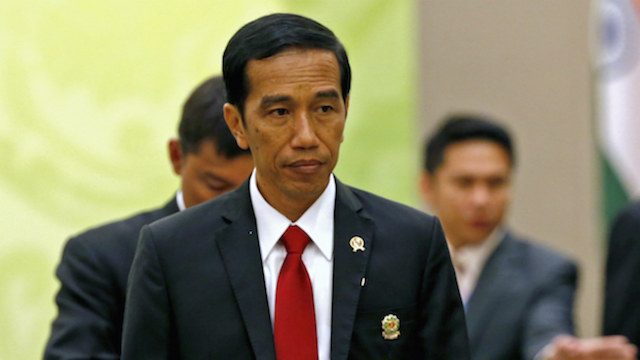SUMMARY
This is AI generated summarization, which may have errors. For context, always refer to the full article.

As the Philippines, Vietnam and Thailand aggressively woo foreign investors with incentives, tax holidays and appeals to boost growth, Indonesia, under the leadership of President Joko Widodo, continues to go the other direction.
While Jokowi, as he is known, has used every overseas trip to invite foreign investment, the message from his government is almost exactly the opposite. On numerous stages Jokowi and other officials tell audiences foreigners have taken advantage of Indonesia, causing its people unspecified harm.
Nationalist voices from both within government and outside are reinforcing the view that Indonesia increasingly wants to resurrect the now-discredited policies of import substitution abandoned by most fast-growth economies decades ago.
The nationalist rhetoric seems to support, at least indirectly, moves by Muhammadiyah, the nation’s second largest mainstream Muslim organization, representing 29 million of Indonesia’s 252 million people, to use the Constitutional Court to turn the nation inward.
Muhamidiyah succeeded in overturning the nation’s upstream oil and gas regulator in 2013 in the Court. In April, a judicial review resulted in overturning a 2004 Water Law that leaves soft drink bottlers, water companies and even privatized city water providers with no legal basis for the permits they rely on to do business. Numerous lawsuits have already gone after private companies on the basis of the ruling and potentially any private company using water for industrial use could be at risk.
Three other cases now will seek to overturn the 1999 Foreign Exchange Law, the 2007 law on Investment and the 2009 Electricity Law. If successful, private electricity suppliers could become illegal, holding foreign exchange may be banned for all but the government and foreign investors could be marginalized.
The group has also claimed an additional 100 laws may violate the Constitution, which states in generic terms that all natural resources shall be under the powers of the state and for the good of the people. In each case, Muhammadiyah says it is pursuing a “constitutional jihad” to in effect reverse privatization and concentrate power in the hands of the state for the “benefit” of the people.
“Muhammadiyah makes an aggressive challenge against the current legal foundation of investment and commercial activity in the country,” wrote Robert Milbourne, a partner of the Australia-based international law firm K&L Gates, in the Australian Financial Review. “Outsiders should be wary that the balance of power, and the stability of the legal regime, could be under real threat.”
The government “doesn’t really support these judicial reviews,” said a foreign executive, “but nationalist rhetoric is so prevalent, starting with Jokowi, that the fear is the court will see such thinking as mainstream.”
In other areas, the government is poised to introduce regulations to require local content for smartphones – although Indonesia has virtually no top-drawer tech industry to supply the content. A pending data center regulation is designed to require all businesses including banks and social media giants like Facebook to keep all their data centers in-country. This again is moving forward despite a worrying lack of infrastructure, security concerns and the global movement of data to cloud providers.
On July 1, the country will ban foreign-denominated currency transactions, requiring settlements in rupiah instead. Work permits for expatriates are increasingly difficult to obtain despite a skilled labor shortage.
“There is no vision in government of how these policies work to the benefit of the country,” a senior government official said privately. “It is all tactical and the policies are not coordinated.”
This is an excerpt of a story that appears in Asia Sentinel. Read the full story here.
Add a comment
How does this make you feel?
There are no comments yet. Add your comment to start the conversation.